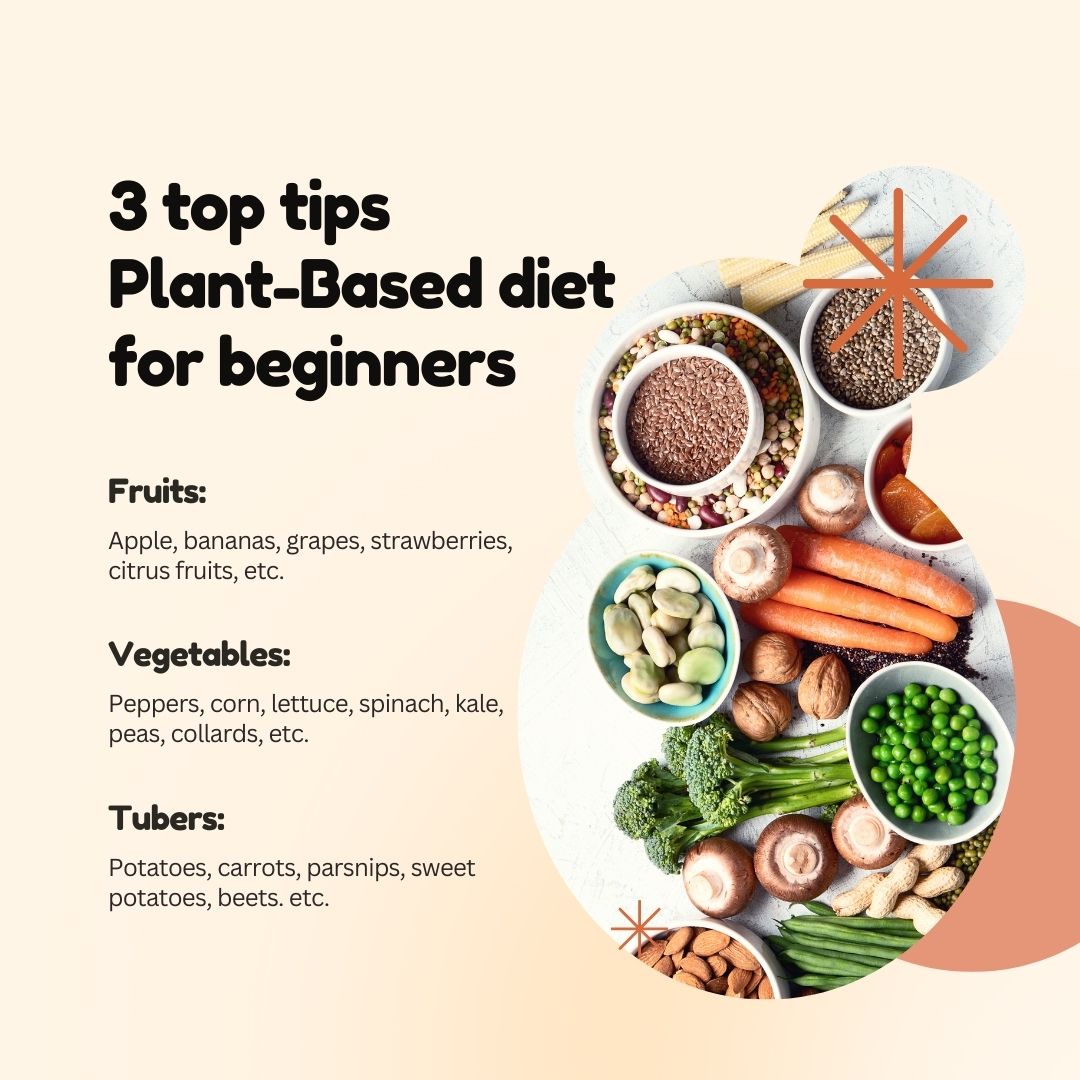🌱 Can a Plant-Based Diet Improve Your Health? Here’s What You Need to Know
Introduction
In recent years, plant-based diets have surged in popularity—not only as a lifestyle trend but also as a powerful approach to improving overall health. With a growing body of scientific evidence supporting its benefits, and centuries of traditional wisdom backing the concept, eating more plants and fewer animal products has been shown to support weight management, reduce the risk of chronic diseases, and promote long-term vitality.
This article explores how switching to a plant-based diet can positively transform your health, the science behind these benefits, and actionable tips for making the shift sustainably.
🌿 What Is a Plant-Based Diet?
A plant-based diet is primarily focused on foods derived from plants. While it doesn’t necessarily mean you have to become a vegan or vegetarian, the idea is to prioritize plant-based foods while reducing or eliminating animal-derived products. A typical plant-based diet includes:
-
Vegetables: Leafy greens, cruciferous vegetables (broccoli, cauliflower), and root vegetables (sweet potatoes, carrots).
-
Fruits: Berries, citrus fruits, apples, and tropical fruits like mangoes and pineapples.
-
Legumes: Beans, lentils, peas, chickpeas, and soy products like tofu and tempeh.
-
Whole Grains: Brown rice, quinoa, oats, barley, and whole wheat.
-
Nuts and Seeds: Almonds, walnuts, chia seeds, flaxseeds, and pumpkin seeds.
This approach doesn’t require eliminating all animal-based products but encourages eating a variety of nutrient-dense plant foods that are high in fiber, antioxidants, vitamins, and healthy fats.
✅ Health Benefits of a Plant-Based Diet
Switching to a plant-based diet can provide several health benefits, many of which have been confirmed through scientific studies. Here’s a breakdown of some of the most significant advantages:
1. 💓 Reduces the Risk of Chronic Diseases
A plant-based diet has been shown to reduce the risk of a wide range of chronic conditions, including:
-
Heart Disease: Consuming fewer animal-based fats and more plant-based foods helps lower cholesterol and improve heart health. Studies show that people who follow plant-based diets have a 32% lower risk of heart disease.
-
Type 2 Diabetes: A diet rich in fiber and low in processed foods helps regulate blood sugar levels. Whole plant foods, such as legumes and vegetables, improve insulin sensitivity.
-
Obesity: High-fiber, low-calorie plant foods promote healthy weight loss. Studies have found that people on plant-based diets tend to have lower body mass indexes (BMI).
-
Hypertension: Potassium-rich plant foods such as leafy greens and fruits help regulate blood pressure. A plant-based diet can reduce the risk of developing hypertension and may even lower high blood pressure in individuals already diagnosed with the condition.
2. 💪 Boosts Energy and Immunity
Whole plant foods are packed with essential nutrients that boost your energy levels and improve immune function. These benefits include:
-
Antioxidants: Fruits and vegetables are rich in antioxidants that help combat oxidative stress, reducing inflammation and supporting immune health.
-
Vitamins and Minerals: A diet rich in plant foods provides essential vitamins like C, A, and E, as well as minerals like magnesium and potassium that play crucial roles in energy production and immune defense.
-
Fiber: The fiber in plant foods aids digestion and promotes gut health. A healthy gut microbiome supports overall immunity and reduces the risk of chronic diseases.
3. 🧠 Improves Mental Clarity and Mood
A plant-based diet can have a positive impact on your brain health, mood, and mental clarity:
-
Omega-3 Fatty Acids: Sources like flaxseeds, chia seeds, and walnuts provide plant-based omega-3 fatty acids, which are crucial for brain function and cognitive health.
-
Lower Rates of Depression and Anxiety: Research has shown that individuals who follow plant-based diets tend to have lower rates of depression and anxiety. The anti-inflammatory effects of plant foods may play a role in improving mood.
-
Steady Energy and Focus: The natural sugars in fruits and the high-fiber content of whole grains and legumes help regulate blood sugar levels, preventing the crashes that can lead to irritability and poor concentration.
4. 🌍 Environmentally Friendly
A plant-based diet is not just a boon for your health; it’s also beneficial for the planet:
-
Reduced Carbon Footprint: Animal agriculture is one of the largest contributors to greenhouse gas emissions. Shifting toward plant-based foods helps reduce environmental impact.
-
Conserves Water and Land Resources: Producing plant foods requires significantly less water and land than raising animals for meat and dairy.
-
Supports Ethical Food Systems: A plant-based diet supports more ethical and sustainable food systems, focusing on foods that are grown rather than raised, which contributes to less exploitation of animals.
🍽️ How to Start a Plant-Based Diet
Making the switch to a plant-based diet doesn’t need to be overwhelming. Here are some practical tips to help you get started:
🌟 Health Benefits of a Plant‑Based Diet
1. Reduces Risk of Chronic Disease
-
Heart Disease: Plant-based patterns reduce LDL cholesterol and support heart health. Studies show a 32% lower risk in plant-eaters.
-
Type 2 Diabetes: High fiber intake supports insulin sensitivity and blood sugar control.
-
Hypertension: Potassium-rich produce (like leafy greens) helps regulate blood pressure.
2. Supports Weight Management & Healthy BMI
Whole plant foods tend to be lower in calories and higher in fiber, making it easier to control weight naturally.
3. Increases Energy & Immune Function
-
Antioxidants in fruits and vegetables combat inflammation
-
Vitamins A, C, and E plus minerals like magnesium and potassium boost metabolism and immunity
4. Enhances Mood, Focus & Mental Clarity
-
Plant-based omega‑3s from chia, flaxseed, and walnuts support brain function
-
Lower inflammation and stable blood sugar levels contribute to better mood and cognition
5. Environment & Ethics: A Win-Win
-
Reduces greenhouse gas emissions from livestock
-
Conserves water and land
-
Promotes ethical, sustainable food systems
🧪 Science Check: Why Plant-Based Works
-
Harvard researchers note correlations between plant-based diets and lower chronic disease rates.
-
Institutes like NIH confirm fiber reduces inflammation and improves gut health.
-
Studies published in Frontiers in Nutrition demonstrate mental benefits tied to anti-inflammatory diets.
🌱 How to Get Started: Plant-Based Made Simple
Not ready to go vegan? No problem. Follow this flexitarian-friendly approach:
✅ Start Slow
Try “Meatless Mondays” or swap one meal a day with plant-based alternatives.
✅ Mix It Up
Eat colorful produce with legumes, grains, nuts, and seeds to ensure nutrient variety.
✅ Plan Ahead
Batch cook dishes like bean chili or grain bowls for busy days.
✅ Protein Planning
Focus on plant-based protein sources like lentils, quinoa, tofu, tempeh.
✅ Include Healthy Fats
Avocado, nuts, seeds, and olive oil maintain essential fat intake.
✅ Consider a B12 Supplement
If avoiding animal products entirely, B12 supplementation is important for nervous system health.
🚫 Debunking Common Plant‑Based Myths
| Myth | Truth |
|---|---|
| “You won’t get enough protein.” | Legumes, quinoa, tofu, and nuts provide ample protein. |
| “It’s restrictive or dull.” | Plant-based recipes can be colorful, diverse, and flavorful. |
| “Only vegans follow it.” | Even flexitarian diets—eating more plants with occasional animal foods—reap health benefits. |
| “It’s too expensive.” | Beans, oats, lentils, and local produce are often budget-friendly. |
🥗 Sample One-Day Plant-Based Meal Plan (USA-Friendly)
| Meal | Example Dish |
|---|---|
| Breakfast | Overnight oats with almond milk, chia seeds, and berries |
| Lunch | Chickpea salad wrap with avocado and leafy greens |
| Snack | Carrot sticks with hummus |
| Dinner | Tofu stir-fried with broccoli, quinoa, tamari sauce |
| Dessert | Dark chocolate square + banana |
| Drinks | Water, green tea, sparkling water |
🌟 Conclusion: Is It Worth It?
Without a doubt—yes! A plant-based diet is beneficial for both your health and the environment. Even small changes—like adding more vegetables or switching to plant-based protein sources—can have a significant positive impact on your health, help prevent chronic diseases, and support the planet.
💡 Ready to take the first step? Start by adding one more plant-based meal to your routine each day. With time, you’ll discover the long-lasting benefits of a more plant-centered lifestyle.

